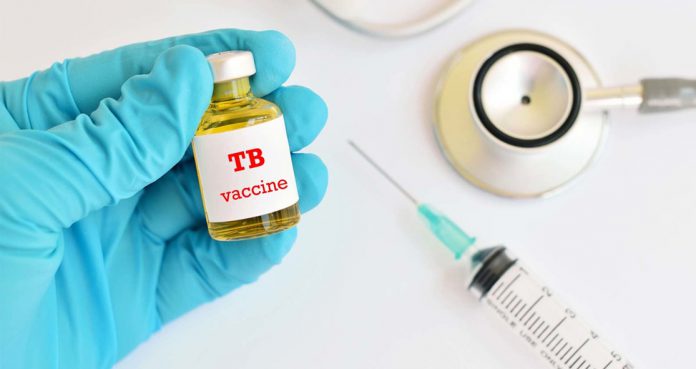According to a new study, an experimental tuberculosis (TB) vaccine, which was clinically tested, prevented the development of the active form of the disease in nearly 50 percent patients, showing promising results in preventing the disease,
The study was presented on Tuesday at the 50th Union World Conference on Lung Health conference. The results were published in The New England Journal of Medicine.
Dr. Mario Raviglione, who headed the WHO’s global TB program between 2003 and 2017, told the New York Times, “The vaccine looks promising, and likely better than our century-old BCG [bacille Calmette-Guerin] vaccine.”
Typically, the BCG vaccine is given to children in nations with a high prevalence rate of TB. It is usually not given to adults because its efficacy varies in preventing mycobacterium tuberculosis, the pathogenic bacterium that causes the disease.
Worldwide, TB is one of the deadliest infectious diseases, which affected more than 10 million people and killed 1.5 million people in 2018. The disease affects people in two ways – active form and latent form.
In the active form, the bacterium multiplies in the lungs and causes infection or even death. In the latent form, the bacterium is present in the system and causes an immune response, although it does not cause any symptoms. The latent form of TB may develop into the active form but the risk is very low.
In the study, researchers tested the vaccine on patients who had the latent form of TB. Approximately 3,300 individuals participated in the study, with 1,626 of them getting two doses of the experimental vaccine, while others receiving placebo
The researchers reported last year that 10 of the vaccinated participants and 22 of the unvaccinated participants had developed the active form of TB, which increased this year.
They also found that the experimental vaccine was roughly 50 percent effective, suggesting “the vaccine is holding up over time,” said Paula Fujiwara, the scientific director of the International Union Against Tuberculosis and Lung Disease.
Although promising, the results do not clarify which patients would benefit from using the vaccine. It is also unclear whether the experimental TB vaccine works in people who do not have the latent form of TB.
According to BBC, the vaccine would probably be ready to use in people who need it most by 2028 because of its uncertainties. The study authors concluded, “These results need confirmation in larger and longer studies conducted in a broader range of populations.”





















